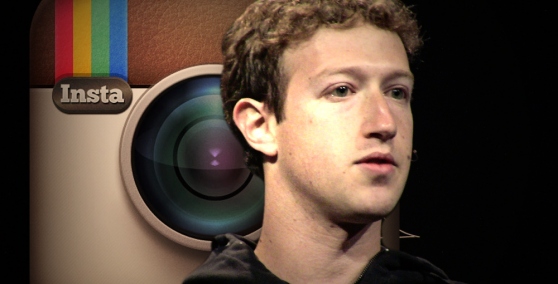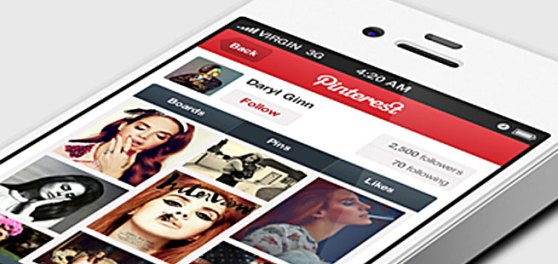Social media was inescapable in 2012. Facebook ballooned to 1 billion users, Instagram surpassed critical mass, Twitter took over the presidential election, and Pinterest gave us something new to root for.
But we also saw outlandish lawsuits and a botched IPO, ensuring that 2012 will be remembered as a year of both extreme highs and lows in social networking. What follows are our top 10 picks for the social media-related news stories that defined the year.
1. Facebook goes public
Facebook’s May 18 debut on the Nasdaq was the most hotly anticipated consumer Internet initial public offering since Google’s in 2004 and the largest tech IPO in U.S. history. While some where rightfully skeptical of the social network’s overblown $100 million-plus valuation, no one could have predicted the drama that started at 11:00 a.m. Eastern that day.
The Nasdaq proved ill-prepared to hand the volume of trading. The system got backed up, trading was delayed, and order and cancellation confirmations only made their way to traders and bankers much later in the day. The flubbed opening left the Nasdaq with more than a little egg on its face. The exchange eventually proposed a $62 million, all-cash settlement, which has yet to be approved by the SEC.
Meanwhile, Facebook’s share price was hit with the ugly stick. After a disappointing first day of trading that saw underwriters scramble to keep shares above the $38 IPO price, the stock went on to lose more than half of its value by early September. To boot, Facebook currently faces consolidated class action lawsuits for allegedly disclosing material information about financials to privileged insiders.
Glitches and big hiccups aside, Facebook’s stock has recovered somewhat in the final three months of 2012. The company appears much stronger on mobile and is aggressively pushing forward with initiatives like Gifts to boost revenue. Still, Facebook’s stock is down around 30 percent from its IPO price.
2. Facebook buys Instagram

No acquisition proved more gripping than the swiftly negotiated, colossal deal between Facebook and photo-sharing phenom Instagram.
On April 9, Facebook announced that it had agreed to acquire Instagram in a cash and stock arrangement then valued at $1 billion. The surprise buy came just days after Instagram launched its first application for the Android platform.
But it was the behind-the-scenes wheeling and dealing of Instagram co-founder Kevin Systrom that made this deal particularly fascinating. In the weeks prior to the Facebook announcement, Systrom participated in active negotiations with cross-town pal Twitter. The photo social network received an offer and a term sheet from the information network, VentureBeat was first to report. Twitter apparently offered $525 million in cash and stock, the New York Times recently revealed.
Systrom was able to use the Twitter offer and an in-progress funding round to double the value of his two-year-old company during a speed round of negotiations with Facebook founder and CEO Mark Zuckerberg.
The Facebook-Instagram deal eventually closed in October. By that time, Facebook’s stock price had dropped, making Instagram worth just $715 million at the time. Our fascination with the acquisition has yet to fade.
3. Pin it to win it

The award for the most surprising social network of 2012 goes to Pinterest. The web and mobile service for saving inspirational finds to digital collections called “pinboards” seemingly came out nowhere to become one of the most talked about and most trafficked sites on the web.
Pinterest first launched in 2010, but the San Francisco-based company waited until this past August to ditch its invitation-only process and release public apps for Android and iPad. No matter. Even before these significant releases, Pinterest became the obsession of recipe collectors, fashion curators, celebrities, brands, and even the POTUS.
According to analytics firm Nielsen, Pinterest grew its audience from 2.5 million people to 25 million between July 2011 and February 2012. By year’s end, Nielsen ranked Pinterest as the sixth most popular social network, with 27.2 million unique U.S. visitors.
Pinterest “had the largest year-over-year increase in audience and time spent of any social network, across PC, mobile web, and apps,” Nielsen said.
The startup’s quick rise wasn’t without its share of drama. In April, co-founder Paul Sciarra inexplicably left the company he helped create. The social network also dealt with serious challenges around making sure pins didn’t feature copyrighted content without the permission of the original creators.
4. Twitter distances itself from developers

Once the beloved buddy of developers everywhere, Twitter used 2012 to follow through on a promise to restrict app-makers’ access to its data and crack down on apps that replicate its tweet stream, features, or follow graph.
The policy changes, though long expected, ruffled plenty of feathers and even helped to spawn the creation of App.net, a developer-friendly social platform that replicates many of Twitter’s features.
Those affected by Twitter’s API attitude change range from social giants like Instagram and Tumblr to little-known apps simply looking to help people tweet from uncharted platforms.
PeopleBrowsr was the most disgruntled of the companies crippled by the changes. The social analytics company, which relies on Twitter’s firehose of tweet data, took legal action to maintain access to its lifeblood.
Tensions between Twitter and its developer community remain high, which means 2013 should be just as melodramatic as 2012.
5. Pop culture goes social
The Olympic Games, the 2012 U.S. presidential election, Superstorm Sandy, and other major world events all demonstrated one thing: Social media now plays an inextricable role in how people experience and react to everything.
During this year’s Summer Olympic Games, athletes and fans from around the world came together in the only places they could: Twitter, Facebook, and Instagram. The unprecedented real-time gathering, which produced 150 million tweets in just 16 days, gave people around the globe an inside view into the games but also caused plenty of tension in the U.S., as results were typically broadcast through social channels before NBC showed them on television.
As for the 2012 election, both campaigns were eager to capitalize on social distribution channels to reach citizens. Twitter even became of the home of public discourse (and trash talk) during debate season. Debate-watchers’ real-time reactions gave birth to a new mainstream meme with each session. And when all was said and done, newly reelected President Barack Obama thanked voters on Twitter before he made his official post-election speech. His “four more years” tweet quickly became the most retweeted tweet ever.
Superstorm Sandy’s devastating trail of destruction was captured most poignantly by those who experienced her first-hand. On October 29, Instagram users shared their Sandy images at a rate of nearly 10 per second.
The ubiquity of Facebook and Twitter also often complicated breaking news stories this year. Most recently, social media proved to be the catalyst behind the digital lynch mob that went after Ryan Lanza, the man first identified as the alleged shooter in the Sandy Hook Elementary School tragedy. Lanza’s Facebook profile was immediately besieged by angry web denizens. His photo, along with accompanying vitriol, spread virally through the social network. As it turns out, Ryan was not the shooter but the shooter’s brother.
